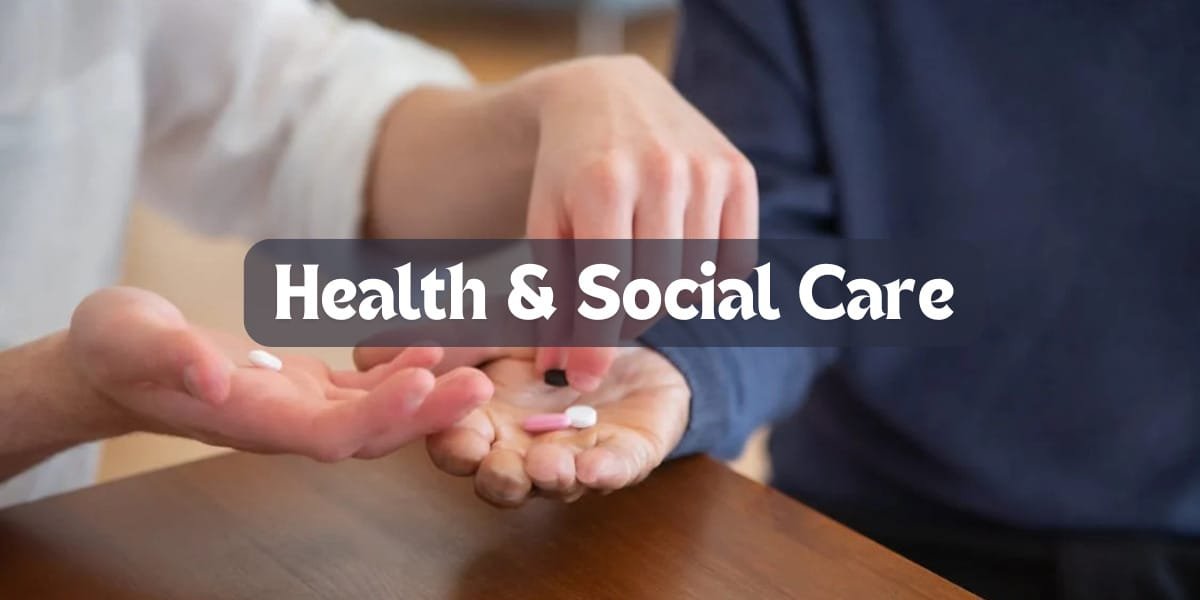

Introduction
The health and social care sector is rapidly evolving to meet growing demands and improve well-being. Aging populations and increasing chronic conditions require integrated, compassionate care. According to the World Economic Forum, aging demographics are driving growth in healthcare jobs like nursing, underscoring the need for trained professionals. Meanwhile, social care (support for daily living, mental health, and community services) is gaining recognition as vital to overall health. This article provides an overview of the trends transforming health and social care and highlights how Course Plus courses can equip caregivers and professionals for these changes.
1. Person-Centered Care
Modern care emphasizes the individual. Providers tailor medical and support services to each person’s needs and preferences. This involves respectful communication and shared decision-making. Caregivers learn to involve patients and families in planning, which improves satisfaction and outcomes. To build these skills, professionals can take courses in Communication and Care. For example, Course Plus’s Holistic Wellness & Mental Health course trains caregivers to address not only physical health but also emotional well-being, enabling truly person-centered support.
2. Integrated Health and Social Services
Instead of siloed systems, many regions are integrating health and social care. Hospitals, clinics, and community services now collaborate to address medical and social needs together. For instance, a nurse might coordinate with a social worker to ensure a patient has home support post-discharge. Integrated care reduces rehospitalizations and improves quality of life. Professionals working in this model should understand both realms. Course Plus offers courses on Health Solutions and Social Care Awareness, giving staff a broad perspective on managing complex cases that cross health and social domains.
3. Technology in Caregiving
Digital tools are entering social care as well. Care management software, telehealth, and alert systems help track vulnerable individuals (like the elderly) and provide remote support. Wearable health monitors can alert carers to falls or vital changes. Training in these technologies is emerging as a priority. For example, Course Plus’s IT Infrastructure or Health Informatics courses (under Technology) can help healthcare workers use digital tools safely. Embracing technology allows more efficient care coordination and timely interventions.
4. Workforce Training and Professional Development
A skilled, compassionate workforce is at the core of health and social care. Given the sector’s demands, ongoing training is critical. Courses in Mental Health First Aid, Child Protection, or Community Care ensure staff meet regulatory and ethical standards. For example, Course Plus provides accredited courses like Holistic Wellness & Mental Health and Healthy Heart to keep practitioners informed on current best practices. Upskilling in leadership and management also prepares senior staff to lead teams effectively. Investing in education helps retain staff and improves service quality across health and social services.
5. Community and Preventive Approaches
Preventing health issues before they escalate is more important than ever. Community outreach programs, health education, and support groups empower people to stay well. Social care networks (charities, volunteer groups) also contribute to prevention by offering support services. Professionals can engage with these by learning public health principles. Course Plus’s wellness courses teach strategies for community health promotion. By focusing on prevention and community support, health and social care providers can reduce strain on hospitals and create healthier societies. Call to Action: Are you a health or social care professional looking to enhance your skills? Check out Course Plus’s accredited Health & Wellness courses. Whether you work in a hospital, clinic, or community center, our training in communication, mental health, and holistic care can help you provide the best support to those who need it. Invest in your professional development today with Course Plus. The blog page at Course Plus offers fresh ideas, expert advice, and actionable tips to enhance your daily life. It serves as a valuable resource for individuals seeking to improve various aspects of their personal and professional lives.
Frequently asked Questions
What is health and social care integration?
It’s the coordination of medical services with social support (like housing, nutrition, and social work) so individuals receive comprehensive care. Integration leads to better outcomes and efficiency.
Why is person-centered care important?
Person-centered care treats individuals with dignity and tailors services to their unique needs. It improves satisfaction and health outcomes compared to one-size-fits-all approaches.
How are technology and caregiving related?
Technology (like telehealth apps, health monitors, and care management systems) helps caregivers monitor patients remotely, manage data, and respond faster, making care safer and more efficient.
How does Course Plus support social care professionals?
Course Plus offers courses in Health Solutions, Mental Health, and Wellness that are relevant to social care. These programs help caregivers and health workers develop the skills needed to provide empathetic, effective support in both clinical and community settings.
Courses Related To This Blog
Discover a range of carefully selected online courses crafted to enhance your skills across multiple topics. Engage with affordable, top-quality courses designed to provide in-depth learning and address your unique educational needs effectively.

Health And Wellness Coaching Certification
Join the Community & Get Updates🔥
Related Post
Explore our latest expert insights, practical guides, and in-depth resources on trending topics designed to answer your questions, solve your challenges, and help you stay ahead with up-to-date trends and strategies.













